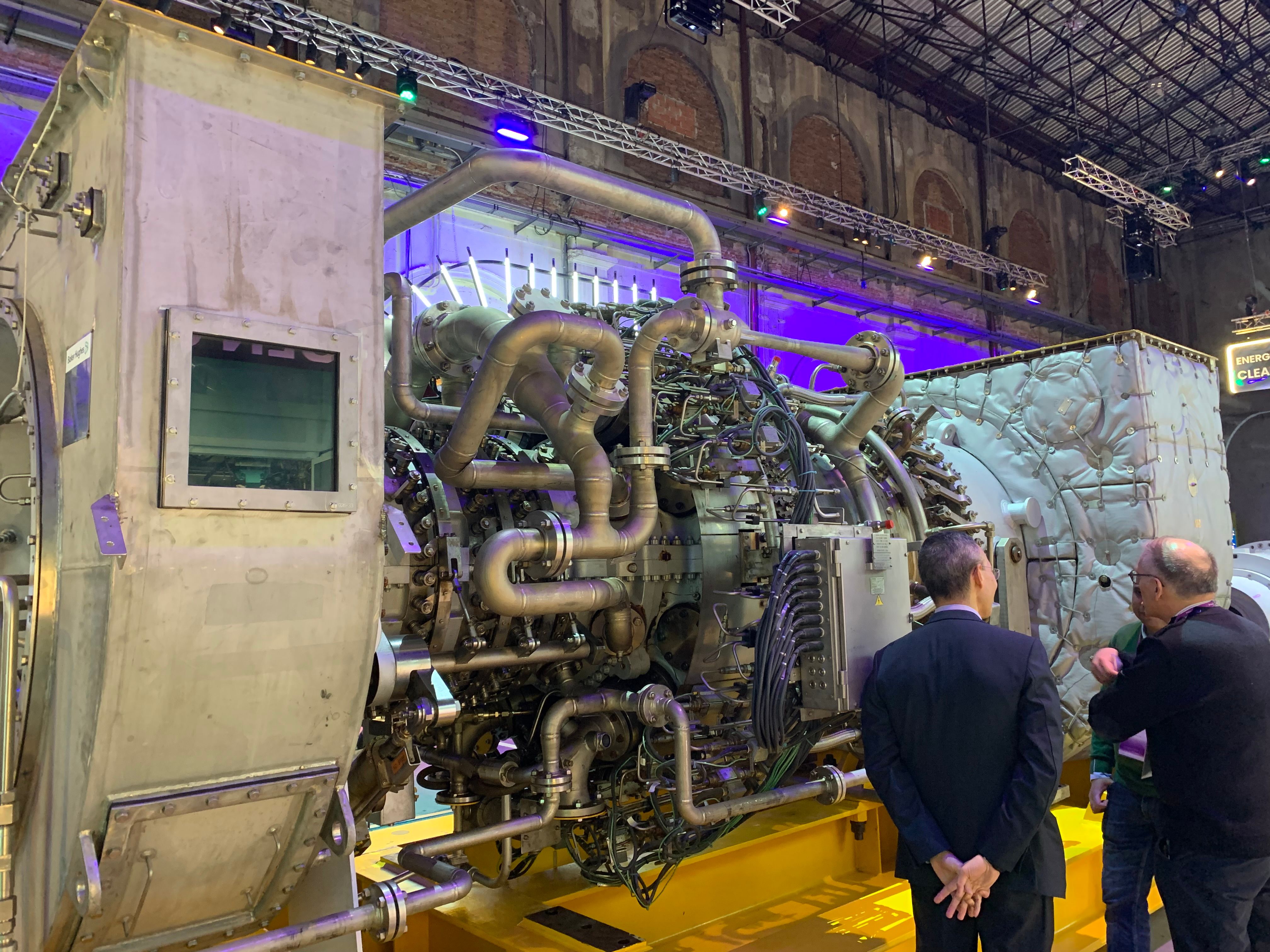Baker Hughes Annual Meeting Showcases the Hydrogen Economy Against Backdrop of Strong Turbomachinery Orders
Baker Hughes Annual Meeting Showcases the Hydrogen Economy Against Backdrop of Strong Turbomachinery Orders
At the 24th Baker Hughes Annual Meeting (AM) held this week in Florence, Italy, Baker Hughes reported a surge in turbomachinery orders and unveiled several new hydrogen-related advances.
Keynote on Energizing Change
During the opening keynote, Lorenzo Simonelli, CEO and Chairman of Baker Hughes, announced the theme of the conference as energizing change. He stressed the need to scale current technologies to reduce emissions and meet net-zero targets while making it clear that there is no energy future without hydrocarbons for the next few decades. With coal usage continuing to hit record levels around the world, he advocated the replacement of coal with natural gas.
“We need energy growth to meet our needs without compromising the ability of future generations to meet theirs," said Simonelli. “This can be achieved by increasing the efficiency of existing technologies and mature energy assets.”
H2-ready NovaLT 16; credit: Baker Hughes

Hydrogen News
The new Baker Hughes hydrogen testing facility in Florence supports the deployment of hydrogen-ready technologies. It is being used to validate its NovaLT industrial turbines with the goal of them running on up to 100% hydrogen. The test bench allows full-load testing, with fuel flexibility and features a 300-bar pressure and 2,450 kg of hydrogen storage capacity.
For example, Baker Hughes recently completed the manufacture and testing of NovaLT16 hydrogen turbines for Air Products’ Net-Zero Hydrogen Energy Complex in Edmonton, Canada. These machines underwent full-load testing.
In addition, the company reported the delivery of the first two trains of hydrogen compression solutions for the NEOM project in Saudi Arabia. This is said to be the largest green hydrogen project in the world. It is a joint venture of ACWA Power, Air Products, and NEOM. To further support the delivery of projects in the country, including NEOM, Baker Hughes is expanding its manufacturing site in Modon, Saudi Arabia where it plans to do localized testing and packaging.
Further news announced at the show:
- A collaboration agreement reached with HyET for the development, industrialization and commercialization of a hydrogen compression solution.
- A memorandum of understanding with Green Energy Park for collaboration along the green hydrogen value chain, including production, storage, transportation, and utilization of hydrogen and ammonia-based fuels, as well as exploration of possible co-development of projects at the gigawatt scale.
“There is no path to net-zero without innovation and collaboration,” said Simonelli.
NovaLT 16 gas turbine; credit: Baker Hughes

Turbomachinery Order Surge
Baker Hughes reported annual orders for 2023 of $14.18 billion for its Industrial & Energy Technology (IET) segment (turbomachinery and other energy production and monitoring solutions). This is 12% higher than last year's prior record level.
“We were awarded more than $1 billion of contractual service agreements, while we booked the previously announced 9.6 MTPA Ruwais LNG project in the United Arab Emirates," said Simonelli. This is for two electric liquefaction systems and is one of the first all-electric LNG projects in the Middle East.
In gas technology equipment, momentum continued in the offshore market. Baker Hughes was awarded a contract by SBM Offshore to provide turbogenerators, turbocompressors, electric motor-driven compressors, as well as commissioning spare parts, for a floating production, storage, and offloading vessel (FPSO). Additional orders included a contract from a consortium for one electric motor-driven sour gas booster compression package to support the development of offshore natural gas fields in the Middle East. Further quarterly business included CSA commitments worth more than $1 billion primarily driven by LNG and offshore projects in North America and the Middle East as well as upgrade orders, particularly in Europe for refinery and gas network applications to boost efficiency and lower emissions.
The company’s Cordant digital solutions reached a multi-year deal with Shell to centralize the Baker Hughes System 1 asset condition and performance monitoring systems across 33 sites. There was a similar deal for System 1 with India's Oil and Natural Gas Corp. Ltd. (ONGC), this time for 12 offshore platforms.
Tomorrow’s article from the AM show floor offers insight from international oil and gas experts about the U.S. government’s recent announcement that paused new LNG export licenses, as well as a briefing from Brad Crabtree, the Assistant Secretary for the Department of Energy’s (DOE) Office of Fossil Energy and Carbon Management (FECM) on why the pause will not be detrimental in long term.